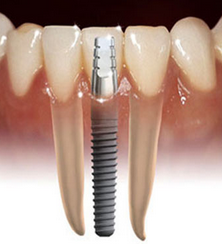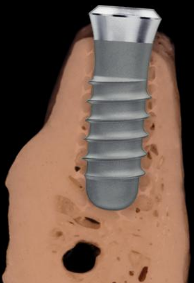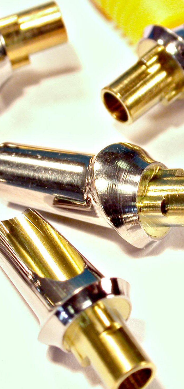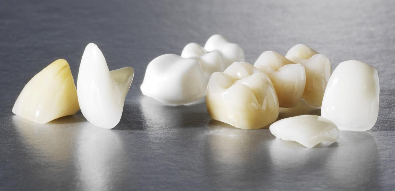 Dental implants are designed as an anchoring system, a foundation so to speak, for replacement teeth that look, feel, and perform just like natural teeth. Anyone who has lost teeth and had them replaced with implants and caps or crowns will realize they can eat almost anything and can smile with confidence. The replacement teeth appear natural, and original facial contours will be preserved as there are no missing spaces or gaps within the jaw and gums. If you have missing or damaged teeth and believe you are a candidate for dental implants in Raleigh, NC, contact the implant dentists at Gover and Gover for an honest, expert diagnosis.
Dental implants are designed as an anchoring system, a foundation so to speak, for replacement teeth that look, feel, and perform just like natural teeth. Anyone who has lost teeth and had them replaced with implants and caps or crowns will realize they can eat almost anything and can smile with confidence. The replacement teeth appear natural, and original facial contours will be preserved as there are no missing spaces or gaps within the jaw and gums. If you have missing or damaged teeth and believe you are a candidate for dental implants in Raleigh, NC, contact the implant dentists at Gover and Gover for an honest, expert diagnosis.
Exactly what are Dental Implants?
Implants themselves are small titanium posts that are inserted into the jawbone where teeth are missing. The bone eventually bonds with the titanium and creates a strong foundation for the artificial teeth that cap the implant. In addition to replacing teeth, other benefits of implants include the preservation of facial structure and prevention of the bone deterioration that occurs when teeth are missing. Implants may be used individually in the case of a single implant to replace a missing tooth, or they may be used more extensively to retain a denture or partial or to support more elaborate bridgework.
Dental implants help people rediscover the smile and self-confidence to speak, laugh and enjoy life again. For more information about dental implants or to schedule a consultation appointment, call our implant dentists in Raleigh, North Carolina at 919-283-4408.
What’s involved in the Dental Implant Procedure?
If you feel implant dentistry is the choice for you, the process starts with a thorough dental exam with full digital X-rays and a review of your health history. During this consultation, your specific needs and considerations will be addressed by our doctors, or depending on your situation, we may call in an Oral and Maxillofacial Surgeon. It’s important to us that your procedure is a success, and we will work with you to make sure you are completely comfortable with the entire process.
The implants themselves are basically metal posts or anchors which act to replace the missing root of the tooth. They are surgically placed into the jawbone. Then small posts known as abutments are attached to the implant. These posts protrude up through the gums and act as solid anchors for the artificial teeth. These teeth, known as caps or crowns, are the final step in the process.
For most patients, the placement of implants involves two surgical procedures. First, the implants themselves are placed within the jawbone. For this procedure to work, there must be enough bone in the jaw, and the bone has to be strong enough to hold and support the implant. If there is not enough bone, it may need to be added with a procedure called bone augmentation. In addition, natural teeth and supporting tissues near where the implant will be placed must be in good health.
For the first three to six months following surgery, the implants are beneath the surface of the gums integrating with the jawbone. It is typical to wear temporary dentures and eat a soft diet during this time. While waiting for the jaw and gums to heal, if multiple teeth are involved your restorative dentist will design the final bridgework or denture which will bring back full functionality. However, for a single-tooth implant these additional steps may not be necessary.
After the first phase is complete and the implant is secure in the jawbone, the second phase begins. Your oral surgeon will uncover the implants and attach a small healing collar. This is basically a screw with a rounded head that fits into the implant and allows the gum to fill in around the area where the artificial tooth will be.
Next, the dentist can begin making your new teeth. First, an impression is taken. Then the abutments are positioned and shaped to create the proper angle for the new teeth. Lastly, the replacement teeth, or crowns, are made and placed over the abutment posts.
The entire procedure is about a six to eight month process depending on the patient. There is usually no major interruption in the patient’s life as a result of going thru the implant procedure.



